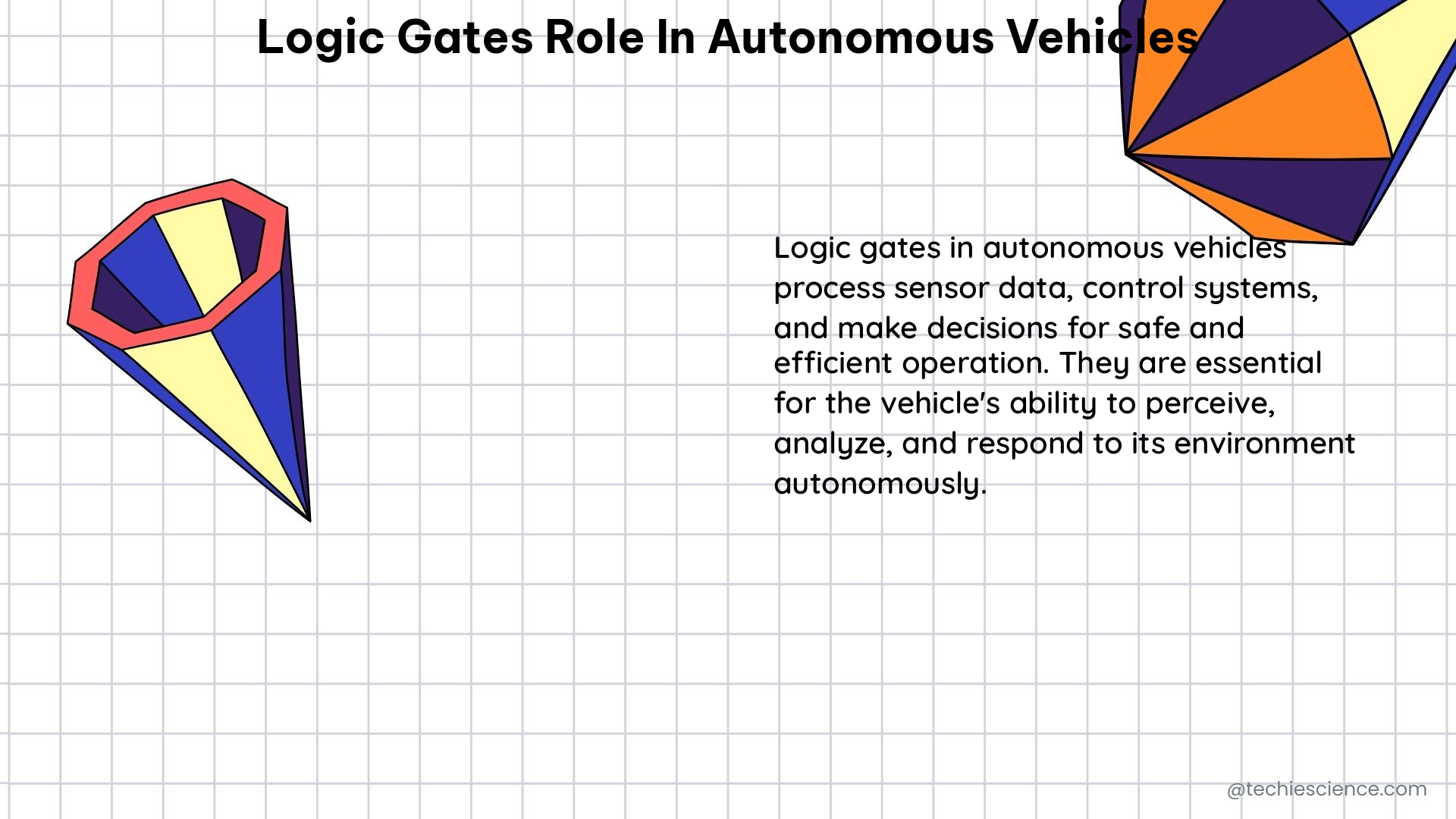Logic gates play a pivotal role in the development and operation of autonomous vehicles, enabling the processing of vast amounts of sensor data and real-time decision-making. These fundamental digital circuits are the backbone of the complex systems that power self-driving cars, ensuring their safety, reliability, and responsiveness to changing road conditions.
Data Processing: Handling Massive Sensor Input
Autonomous vehicles are equipped with a wide array of sensors, including lidar, radar, cameras, and GPS, which generate an enormous amount of data. For instance, a single lidar sensor can produce up to 1.3 million data points per second, which must be processed and interpreted in real-time. This is where logic gates excel, utilizing Boolean algebra to analyze and make sense of this deluge of information.
| Sensor Type | Data Generation Rate |
|---|---|
| Lidar | Up to 1.3 million data points per second |
| Radar | Up to 77 GHz frequency, generating high-resolution images |
| Cameras | Capturing multiple high-definition video streams simultaneously |
Logic gates, such as AND, OR, and NOT gates, work in tandem to filter, combine, and interpret the sensor data, enabling the autonomous vehicle to perceive its surroundings accurately and make informed decisions.
Decision-Making: Navigating the Road Ahead

With the processed sensor data, logic gates play a crucial role in the decision-making process of autonomous vehicles. They can determine the presence and location of obstacles, pedestrians, and other vehicles, and then decide on the appropriate course of action, whether it’s braking, accelerating, or steering.
For example, an AND gate can be used to combine the input from multiple sensors, such as lidar and radar, to confirm the presence of an obstacle. If both sensors detect an object in the vehicle’s path, the AND gate will output a signal to the braking system, instructing the vehicle to slow down or stop.
Similarly, OR gates can be used to handle redundant sensor inputs, ensuring that the vehicle can still navigate and respond to changing conditions even if one sensor fails. This redundancy is essential for the safe operation of autonomous vehicles, as any failure in the system could have severe consequences.
Functional Safety: Ensuring Reliable Operation
Logic gates are not only responsible for data processing and decision-making but also play a crucial role in the functional safety of autonomous vehicles. Functional safety is the absence of unreasonable risk due to hazards associated with the vehicle’s malfunctioning behavior, and logic gates are instrumental in maintaining this safety standard.
For instance, logic gates can be used to monitor the performance of critical systems, such as the steering and braking systems, and ensure that they are functioning correctly. If a sensor or component failure is detected, the logic gates can trigger a failsafe mechanism, allowing the vehicle to safely navigate or come to a controlled stop.
Furthermore, logic gates can be designed with redundancy, where multiple gates are used to process the same data or control the same function. This redundancy ensures that the vehicle can continue to operate safely even if one of the logic gates fails, providing an additional layer of protection against system failures.
Adaptability and Scalability
The versatility of logic gates allows them to be easily integrated into the evolving landscape of autonomous vehicle technology. As new sensors and algorithms are developed, logic gates can be reconfigured or added to the system, enabling autonomous vehicles to adapt to changing requirements and incorporate the latest advancements.
Moreover, the modular nature of logic gates allows for scalable solutions, where the complexity and processing power of the autonomous vehicle system can be easily expanded by adding more gates or rearranging the existing ones. This scalability is crucial as the technology continues to advance and the demands on autonomous vehicles increase.
Conclusion
Logic gates are the unsung heroes of the autonomous vehicle revolution, quietly and efficiently processing vast amounts of sensor data, making critical decisions, and ensuring the overall safety and reliability of self-driving cars. As the technology continues to evolve, the role of logic gates will only become more crucial, serving as the foundation for the next generation of autonomous vehicles.
References:
– Lidar Sensor Data Processing in Autonomous Vehicles
– Functional Safety in Autonomous Vehicles
– The Role of Logic Gates in Autonomous Vehicle Design

The lambdageeks.com Core SME Team is a group of experienced subject matter experts from diverse scientific and technical fields including Physics, Chemistry, Technology,Electronics & Electrical Engineering, Automotive, Mechanical Engineering. Our team collaborates to create high-quality, well-researched articles on a wide range of science and technology topics for the lambdageeks.com website.
All Our Senior SME are having more than 7 Years of experience in the respective fields . They are either Working Industry Professionals or assocaited With different Universities. Refer Our Authors Page to get to know About our Core SMEs.